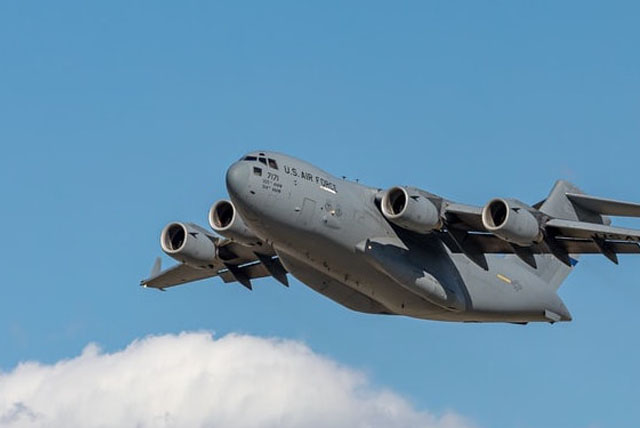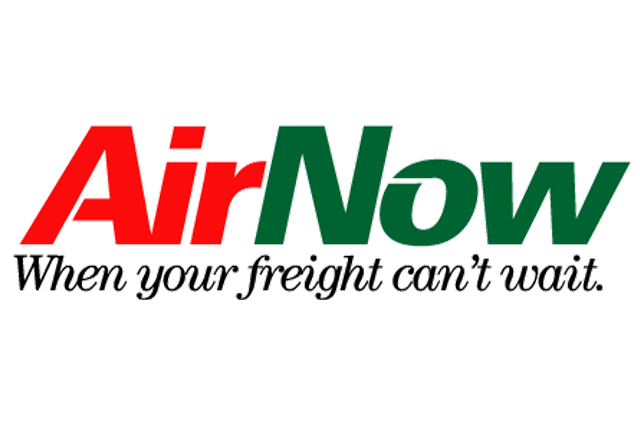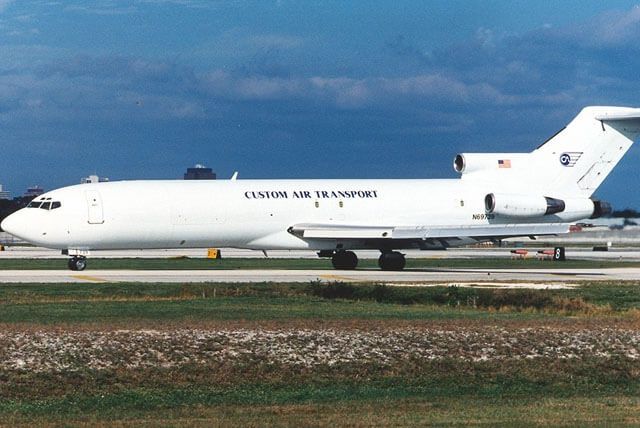
What is the meaning of air cargo?
At its very broadest, ‘air cargo’ is any property intended to be carried by air. It’s the standard term used for moving goods via the air system, rather than by sea, road, or rail. Typically, there are 3 recognized divisions for air cargo:
- Air Freight,
- Air Express, and
- Air Mail
These classifications not only help determine how the air cargo is handled by your freight shipping partner, but will also impact the type of plane that moves your goods, too. This could be a typical passenger aircraft using excess hold space, as is often the case for airmail, or a specialized air freight plane equipped to handle cargo only. There’s also a very specialist type of ‘hand-cargo’ carry, using an onboard courier who carries the item with them in the passenger section. This is, of course, used only for the most fragile or critical of air cargo.
What are the types of air cargo?
Air Mail
Air Freight
General vs Specialized Air Cargo
Of course, air cargo carriers cannot accept just anything! There are restrictions as to what cargo handling can be done by air. While we’d always suggest you check the precise nature of your cargo with the air cargo company you want to use or your chosen freight forwarder, here is a general idea of the good prohibited from shipping as air freight:
- Lithium Batteries
- Power supplies and power banks
- Firearms
- Explosives and flammable substances
- Biochemical products
This is in addition to anything the UN classifies as ‘dangerous goods’ and, of course, illegal goods. Some goods may be allowed as air freight under special circumstances and with special permitting, but not as a general rule, so make sure you discuss your needs with your freight partner of choice.
Depending on the nature of your business, you may be new to considering air cargo services. After all, air cargo shipping has been around a long time, but it is a far younger industry than ocean cargo shipping! Air cargo carriers also have a reputation as more expensive than using ocean freighters. This is true, with air freight costs working out to about 4 times the cost of road/rail transit and up to 12 times the cost of sea freight due to the limits of air cargo capacity. Why, then, is the industry thriving the way it is?
The first, and probably most obvious, the advantage of air cargo is time. Air freight is hugely faster than sea freight, rail, or road transport. Not only is this advantageous for industries like pharmaceuticals, where time is of the essence with your product, but it can also provide the shipper of any type of product category with a distinct advantage. Through smart logistics, you can get your product to your market long before your competition and while it’s still trendy.
It’s not the only advantage of air cargo, however. Typically, service in the air industry is much more reliable. Arrival and departure times are typically set in stone, and delays few. This can be of particular importance post-COVID, where the air freight industry has hit the ground running but many ocean freight ships are still stuck dealing with cargo backloads in port and ships in quarantine.
Two advantages of air freight you probably haven’t considered are the security and resultant low insurance premiums. Air cargo operations are tightly secured on the ground, with airport security keeping airport surroundings near sacrosanct for the safety of passengers. Not to mention the chances of theft and damage are far lower- there are far fewer people with access to your goods during their time waiting for the flight. This, combined with a far shorter shipment duration, will lead to lower insurance premiums on your freight without a glitch in the service offered.
Lastly, warehousing requirements are generally reduced when using air cargo shipping. Clearance times on your freight are faster and you’re typically sending smaller loads than on a ship. This lets customs get to work faster, and lowers your need for lengthy warehousing and a complicated supply chain.
Air cargo services account for only around 0.5% of the overall volume of freight moved globally. Ocean freight handles easily 85% + of freight moved, with road and rail also contributing large amounts. Yet, despite this frighteningly small volume of overall freight moved through air cargo shipping, it accounts for over 35% of the value of international trade items moved- almost $7 trillion with of goods annually.
The bulk of air cargo moved globally comprises high-value consumer goods like electronics and other fragile items, pharmaceuticals, perishable items and temperature-dependent items, electronic parts, cut flowers, fresh fruit and vegetables, livestock, toys, textiles, and clothing. A niche-but critically important- part of air cargo shipping is human organs for donation, testing, or other important medical issues, ‘live’ medicine on its way directly to patients rather than pharmacy shelves (or incapacitated patients themselves), and the moving of beloved pets and other animals such as racehorses. One day soon, it will also be the coveted covid-19 vaccine!
As we mentioned above, almost every airline currently operating offers some kind of air freight service, even if it’s simply as ‘excess’ hold space on their passenger flights. This means that any list of the top air cargo airlines in the world will feature passenger airline favorites like Qatar Airways, Lufthansa, Emirates, Turkish Airlines, and Cathay Pacific. Yet there are also specialized air cargo airlines who do nothing but move cargo day-in and day-out, including Federal Express, Cargolux, and United Parcel Services. Which of these air cargo companies will make the most ideal freight partner for your air cargo shipping needs will depend on your business, cargo volume, and specific shipping needs.
In this quick overview of the air cargo industry, we’ve covered air cargo airlines, types of air cargo that are frequently moved, and the many, many benefits of air cargo shipping for companies in general. If you’re keen to find the right air cargo services for your needs, or simply have other questions about the air freight industry, please don’t hesitate to reach out to us! We’re always on-hand to help you start your air cargo supply chain today.













